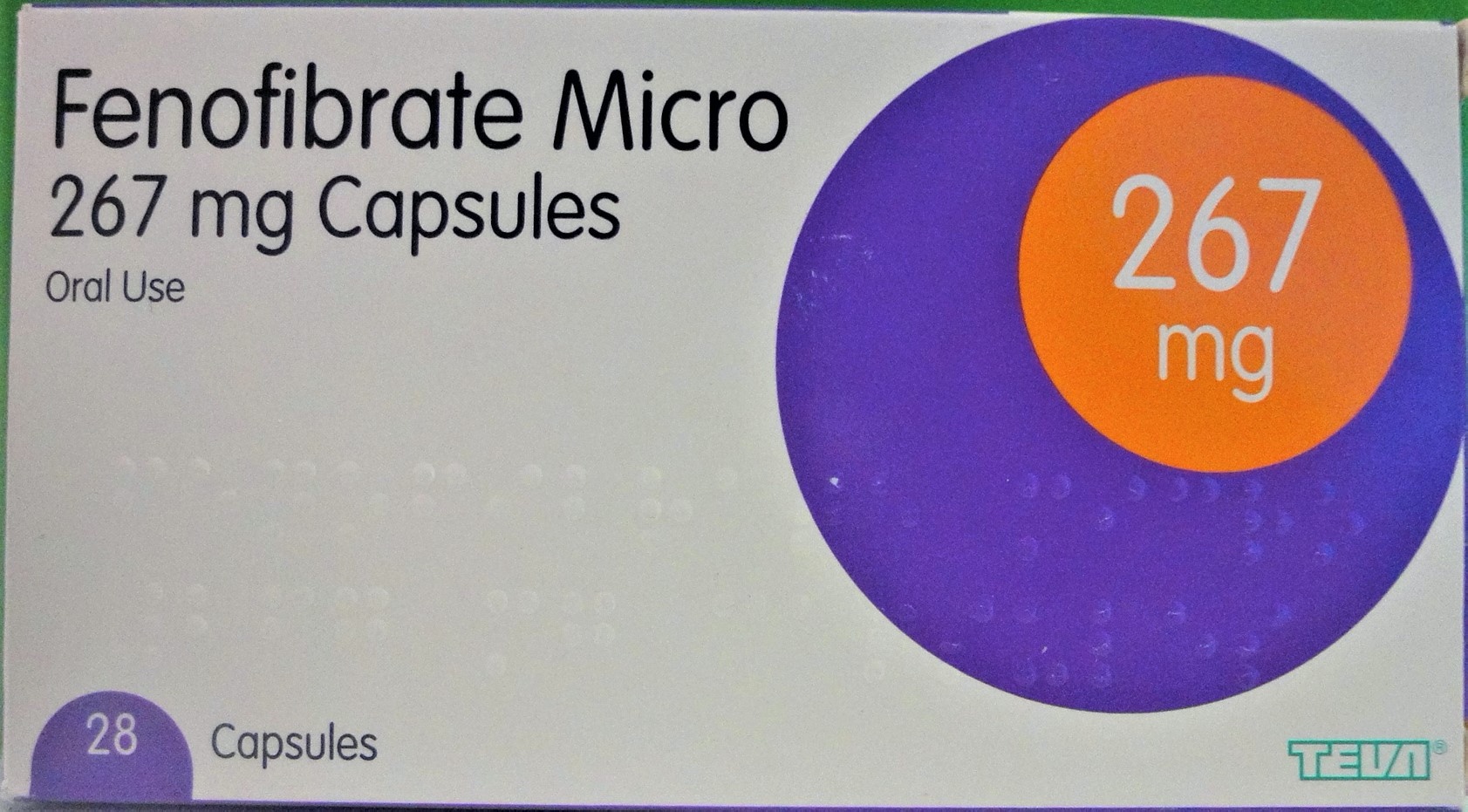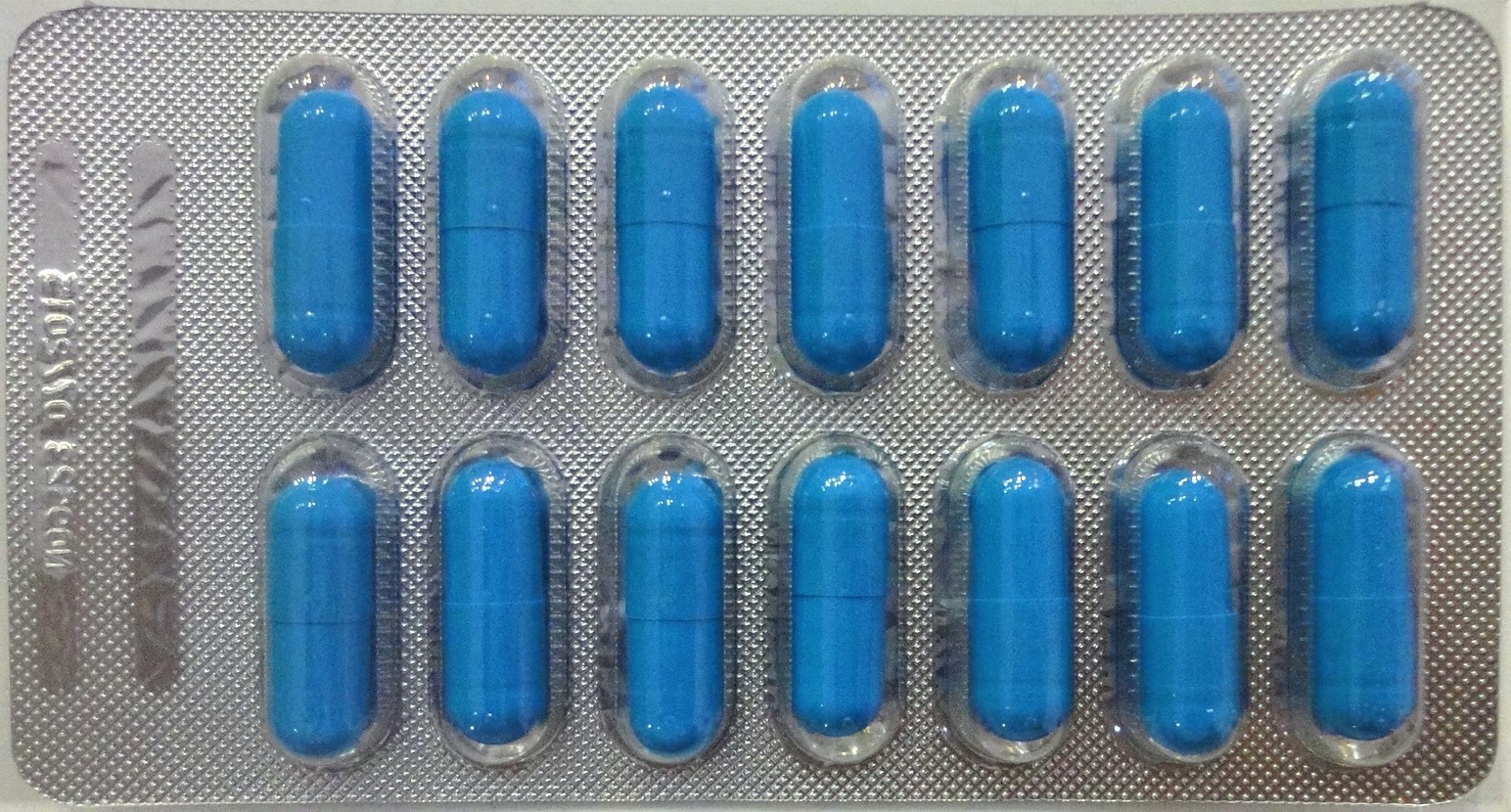FENOFIBRATE MICRO Capsule
ក្រុមហ៊ុនផលិតឱសថ:
PSI supply, Belgium


- សារធាតុសកម្ម
- ប្រសិទ្ធិភាពព្យាបាល និង កម្រិតប្រើប្រាស់
- ហាមប្រើ
- ផលរំខាន
- អន្តរប្រតិកម្ម
- ស្ត្រីមានផ្ទៃពោះ និង ស្ត្រីបំបៅដោះកូន
- ការប្រុងប្រយ័ត្នជាពិសេស
- សកម្មភាពឱសថ បរិយាយប័ណ្ណឱសថ
-
សារធាតុសកម្ម
Fenofibrate 267mg
-
ប្រសិទ្ធិភាពព្យាបាល និង កម្រិតប្រើប្រាស់
Fenofibrate Capsules should always be taken with food and swallowed whole with a little water.
Adults and elderly patients
The usual dose of Fenofibrate Capsules is one capsule taken daily during a main meal.
This dose may be reduced if you have kidney problems.
Children
Fenofibrate Capsules are not recommended for use in children.
If you have been on a diet before starting to take Fenofibrate Capsules, you should continue the same diet.
If you suffer from high blood pressure, your doctor may advise you to start taking medication for this condition if you are not already doing so.
Your doctor may also advise you to stop smoking if you are a cigarette smoker.
-
ហាមប្រើ
- if you are hypersensitive (allergic) to Fenofibrate, similar drugs or to any ingredient in Fenofibrate Capsules
- if you have severe liver or kidney problems
- if you have gall bladder disease
- if you suffer from pancreatitis (inflammation of the pancreas leading to abdominal pain)
- if you have had a side-effect of reacting to sunlight when taking other fibrates (for example, bezafibrate, ciprofibrate or gemfibrozil) or ketoprofen
- if you are pregnant or there is a possibility that you may become pregnant
- if you are breast feeding
- if you are under 18.
-
ផលរំខាន
Contact your doctor as soon as possible and stop taking Fenofibrate if you develop any unexplained or persistent muscle pain, tenderness, weakness or cramps, especially if at the same time you feel unwell or have a high temperature. In very rare cases this can progress to become a serious and potentially life threatening condition, called rhabdomyolysis.
You should tell your doctor if you experience yellowing of the skin or the whites of the eyes (jaundice) or itching as this may be due to hepatitis (liver inflammation). Your doctor may need to carry out tests to check this.
Other side effects that most commonly occur include:
- Stomach and bowel problems such as abdominal pain, sickness, diarrhoea, and wind
- Skin reactions such as itching and rashes, hives, sensitivity to sunlight or UV light (which can lead to tiredness, blistering or rashes)
- Dizziness, tiredness and headache.
Uncommon side effects:
- inflammation of the pancreas (pancreatitis)
- Formation of blood clots in veins (deep vein thrombosis) and blockage of the lung arteries by blood clots (pulmonary embolism).
Rare side effects:
- Development of gallstones
- A loss of interest in sex or an inability to perform sexually
- Hair loss
- A slight decrease in the level of a component in red blood cells (haemoglobin) in the blood
- A slight decrease in the number of leukocytes (a type of white blood cells) in the blood
- A slight increase in the levels certain substances in the blood (serum transaminases, serum creatinine and urea).
Very rare side effects:
- Problems with the lungs known as interstitial pneumopathy.
-
អន្តរប្រតិកម្ម
- anticoagulants (prevent clotting or thickening of the blood, for example warfarin)
- other fibrates which lower levels of fats in the blood (for example bezafibrate, ciprofibrate or gemfibrozil)
- statins which reduce the level of fats in the blood (for example atorvastatin, fluvastatin, pravastatin, or simvastatin)
- ciclosporin (used after organ transplants)
- phenylbutazone, a NSAID used to treat ankylosing spondylitis
- oestrogens which are in medicines including HRT (hormone replacement therapy) and the Pill.
Taking Fenofibrate capsules may increase the levels of certain enzymes in your blood (transaminases). Your doctor may decide to monitor this with blood tests every 3 months during the first year of treatment.
-
ស្ត្រីមានផ្ទៃពោះ និង ស្ត្រីបំបៅដោះកូន
You should not take this capsule while pregnant or breast-feeding unless your doctor tells you to.
-
ការប្រុងប្រយ័ត្នជាពិសេស
If you have
- kidney disease or have a history of kidney disease
- thyroid problems
- alcohol problems (regularly drinking large amounts of alcohol)
- low levels of serum albumin (hypoalbuminaemia) a component of the blood.
- a muscular disease.
-
សកម្មភាពឱសថ
Fenofibrate is a type of drug known as a fibrate, and is used to modify the lipid (fat) levels in the blood. If untreated these high levels of fat might cause problems later on leading to heart disease or other illnesses.
Fenofibrate is used to reduce high fat (lipid) levels in the blood. The types of fats in the blood which are lowered by fenofibrate include triglycerides and cholesterol (known as low density and very low density lipoproteins).
Fenofibrate should only be used in patients who have not been able to control their blood lipid levels with a low fat diet, exercise and weight reduction.
*ព័ត៌មានឱសថត្រូវបានរៀបរៀងដោយ អ៊ីម៉ាតុគឹ មេឌីក (ខេមបូឌា) ដោយផ្អែកលើប្រភពព័ត៌មានខាងក្រោម។ សម្រាប់ព័ត៌មានលម្អិត សូមស្វែងរកនៅក្នុងក្រដាសព័ត៌មាននៃឱសថនីមួយៗ ឬ សាកសួរទៅកាន់ក្រុមហ៊ុនឱសថឬតំណាងចែកចាយនៃឱសថនីមួយៗ។
ប្រភពព័ត៌មាន៖
- ក្រដាសព័ត៌មាននៃឱសថសម្រាប់អ្នកជំនាញវេជ្ជសាស្ត្រដែលប្រើប្រាស់នៅប្រទេសជប៉ុន (Pharmaceutical and Medical Devices Agency, Pmda): https://www.pmda.go.jp
- ព័ត៌មានសង្ខេបនៃឱសថសម្រាប់អ្នកជំងឺដែលប្រើប្រាស់នៅប្រទេសជប៉ុន: http://www.rad-ar.or.jp
